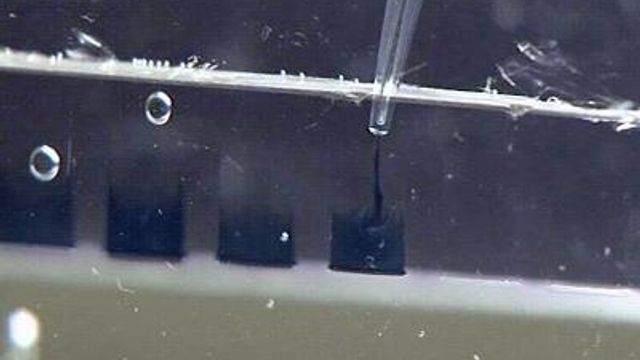DNA arrest bill 'critical', Cooper tells lawmakers
Testifying Tuesday before a state House judiciary committee, North Carolina's attorney general said a bill that would require anyone arrested for a felony to submit DNA is "critical to public safety."
Posted — UpdatedPolice have interviewed hundreds of people and received thousands of tips about June 14, 2007, slaying of the 22-year-old pregnant Fuquay-Varina mother, but detectives still haven't made an arrest in the case.
Still, they call it "very solvable," saying they have DNA evidence from the crime scene. So far, however, they have been unable to find a match.
"It's very frustrating," Blaine said Tuesday. "You'd think about all the technology they have these days and what they have at their fingertips – yet, we still don't have him."
Attorney General Roy Cooper is pushing for a new law that would expand the state's DNA database to help solve cases like Nielsen's more quickly.
Seven years ago, he helped get a law approved that requires all convicted felons to give DNA samples. Now, he wants to expand that requirement to include anyone charged with a felony.
"We are not serving the public unless we use DNA technology to the fullest extent," he said. "It will protect the public, and it will help us better do justice."
Under the proposed bill, authorities would use a cheek swab to take a DNA sample, which would then be entered into state and national databases to determine if the person is wanted for other crimes.
The DNA would be used only for identification purposes, and if a person is found not guilty of the crime or the charge is dismissed, the sample would be deleted from the databases.
In the first year, Cooper said, the state DNA database could be expanded by a projected 45,000 samples and solve an estimated 100 cases.
Since the 2003 law requiring convicted felons to submit DNA samples, there have been 190,000 entries that are being used weekly to solve cases and to exonerate people, he said.
"(DNA) is the 21st century fingerprint, and having it in that DNA database can help us get hits," he said. "It's important that we do it. It's in the interest of public safety that we do it. It's in the interest of public justice that we do it."
Twenty-three other states and the federal government already can collect DNA samples from people upon arrest, and Gov. Bev Perdue has asked for $700,000 in the state budget, in part, to train local law enforcement on how to collect DNA properly.
The law would be self-sustaining through a proposed $3 court fee and eligibility for $1 million in federal funding that would cover the cost of approximately nine new employees at the State Bureau of Investigation Crime Lab, as well as swab kits and training for local law enforcement, the attorney general's office said.
"DNA is rock-solid evidence that can help us solve crime and help us solve it more quickly," Cooper said. "This is something that the General Assembly has to do."
Opponents to the bill, however, are concerned about how the DNA would be used and about the constitutionality of collecting it. They cite the Fourth Amendment, which guards against unreasonable government searches and seizures.
"It's your entire genetic makeup contained in DNA, so there's a lot in there," ACLU Policy Director Sarah Preston said. "That's why courts and, I think, individuals are very protective of that and don't necessarily want to enter it into a government database."
Cooper said that other personal information, including fingerprints and photos, are already collected when a person is arrested. DNA, which is much more accurate, would be an extension of the booking process.
"The courts that have dealt with this have said it is constitutional, not a violation of the Fourth Amendment," he said. "We're only going to use it for identification purposes."
"What this is, is simply a provision to help us solve more crimes faster and help us exonerate innocent people," Cooper continued. "It's a win-win across the board for the people of North Carolina."
• Credits
Copyright 2024 by Capitol Broadcasting Company. All rights reserved. This material may not be published, broadcast, rewritten or redistributed.






